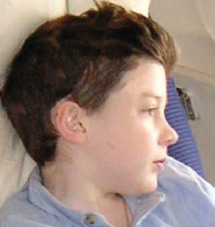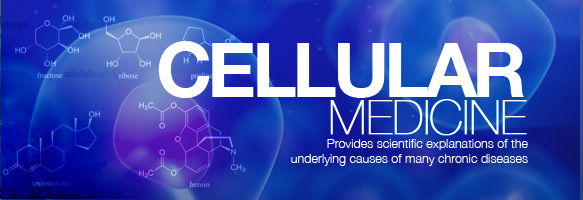- Have any questions? Contact us!
- info@dr-rath-foundation.org

Long-Term Use Of Antibiotics May Raise Risk Of Bowel Cancer
April 6, 2017
International Tribunal Accuses Monsanto Of Committing ‘Ecocide’
April 20, 2017Who Knows What’s Best For Your Children?

You? Or The Government?
A legal battle currently taking place in the UK raises fundamental questions regarding who is ultimately responsible for the health and wellbeing of our children. The case at hand concerns an eight-month-old child, Charlie Gard, who has a rare condition known as mitochondrial depletion syndrome. A fatal disorder affecting the genetic building blocks that provide energy to the body’s cells, it results in progressive muscle weakness and brain damage. With Charlie now critically ill, his parents want to take him to the United States where a pioneering treatment is available. But in a decision that has understandably devastated them, a High Court judge has ruled that the hospital treating the boy can withdraw life support and let him die. The parents now have until 2 May to decide whether to lodge an appeal.
In what is arguably one of the most controversial sections of the ruling, the judge made it clear that under British law parents do not have overriding control to decide what is in the best interests of their children:
| “Some people may ask why the court has any function in this process; why can the parents not make this decision on their own? The answer is that, although the parents have parental responsibility, overriding control is vested in the court exercising its independent and objective judgment in the child’s best interests. The Great Ormond Street Hospital has made an application and it is my duty to rule on it, given that the parents and the hospital cannot agree on the best way forward.” – Excerpt from High Court decision, Judiciary of England and Wales. Tuesday, 11 April, 2017. |
At the root of this case, the key question concerns who our children ultimately belong to. In other words, whose responsibility is it to decide what is best for them? As parents, are we merely guardians who look after our children on behalf of the government they will eventually grow up under and pay taxes to? Most parents, I am sure, would strongly disagree that this is the way our children’s wellbeing should be determined.
Treating parents like criminals

By Oregon Department of Transportation (Uploaded by Smallman12q) [CC BY 2.0], via Wikimedia Commons
Unfortunately, not all such cases end happily. In April 2016, in what can surely only be described as state-sponsored child abuse, the parents of Oshin Kiszko, a six-year-old boy from Perth, Australia, who was fighting a brain tumor, were forced by a court to enroll him in toxic chemotherapy treatment. Angela Kiszko, Oshin’s mother, described how the legal enforcing of dangerous drug treatment on her son almost felt “like Nazi Germany”, saying she had made an informed decision that there were better options available. In doing so, it was clear Angela knew the facts about natural approaches to cancer and the history of chemotherapy. Appearing on ‘60 Minutes’, an Australian current affairs TV program, she insisted it simply didn’t make sense to give her son treatments – chemotherapy and radiotherapy – that themselves are carcinogenic. Sadly, the court prevented her from pursuing alternative approaches and Oshin subsequently died on 28 December, 2016.
The case of Dominik Feld

Dominik Feld
The bottom line is that legal and medical stakeholders of the pharmaceutical ‘business with disease’ will go to almost any lengths they deem necessary in order to prevent parents from accessing scientifically-proven natural cancer treatments for their children. The case of a young German boy, Dominik Feld, who received a diagnosis of bone cancer in September 2002, is particularly instructive here.
Following his diagnosis Dominik began receiving chemotherapy treatment. By May 2003, he was suffering severe side effects due to the highly toxic nature of the drugs he was being given and, weighing only 16 kilos, was already fighting for his life. His parents therefore took the decision to stop the chemotherapy and, after looking into alternative treatments, came across Dr. Rath’s Cellular Medicine approach to cancer. After carefully studying the scientific facts about Cellular Medicine they decided to start their son on it.
By September 2003, after only four months following the Cellular Medicine approach, Dominik was well enough to return to school. For legal and medical stakeholders of the pharmaceutical industry, however, the threat this posed to the multibillion-dollar chemotherapy business was unacceptable. As a result, the next 14 months of Dominik’s life involved a district court withdrawing from his parents their right of care for him; the denial of vital medical care to him after surgery following a sporting accident; the insistence by pharmaceutical medicine that he still had cancer; and numerous clinical and medical errors in the treatment he was then given. This all greatly diminished Dominik’s health and eventually led to his death in November 2004.
Towards a new era in medicine
 In advocating natural forms of healthcare, it is our collective responsibility to ensure that the countless numbers of children who have lost their lives to toxic pharmaceutical-based approaches did not die in vain. The battles they – and their parents – have fought bear testimony to the ongoing failure of conventional medicine to address the primary cause of chronic diseases, namely, nutritional deficiencies.
In advocating natural forms of healthcare, it is our collective responsibility to ensure that the countless numbers of children who have lost their lives to toxic pharmaceutical-based approaches did not die in vain. The battles they – and their parents – have fought bear testimony to the ongoing failure of conventional medicine to address the primary cause of chronic diseases, namely, nutritional deficiencies.
In the healthcare systems of the future, there is no doubt that deaths from diseases such as cancer can be reduced to a fraction of their current occurrence. Natural preventive approaches will ultimately become the cornerstone of modern medicine, and many diagnoses that are today seen as terminal will no longer be death sentences. As a result, our children will grow up to live longer, healthier lives, and the elderly will remain active and independent through to advanced ages.
Though many people do not yet realize it, this new era in scientifically-based natural medicine is already now at hand. Groundbreaking nutritional and Cellular Medicine approaches are available and stand ready to be at the center of this transformation. Quite simply, how soon they are implemented into our healthcare systems will be directly dependent on how active we all are in sharing the facts. Meantime, until we achieve real freedom of choice in healthcare for ourselves and our children, we cannot truly call ourselves a properly civilized society.



